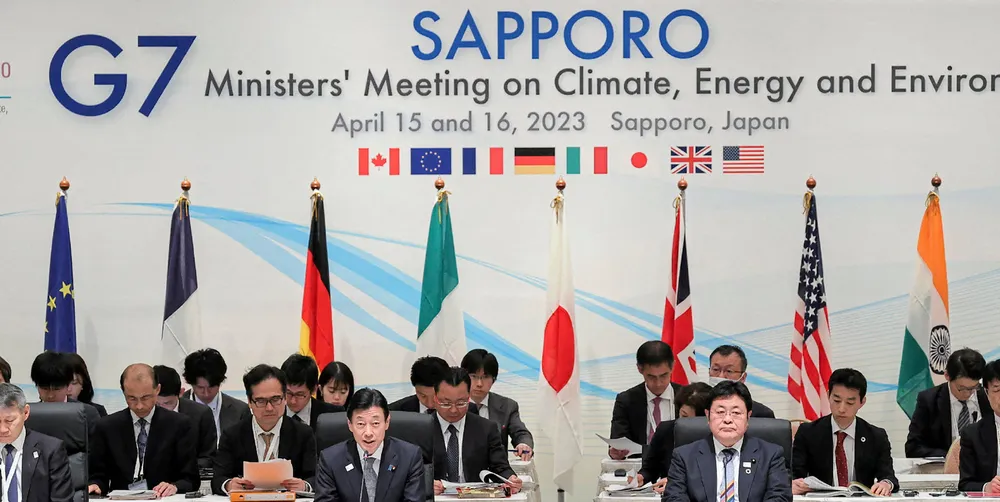'Huge statements and missed opportunities': G7's energy epic gets mixed reviews
Club of rich nations has big numbers on renewables in 36-page statement but position on fossil fuels still seen as too weak

Club of rich nations has big numbers on renewables in 36-page statement but position on fossil fuels still seen as too weak
